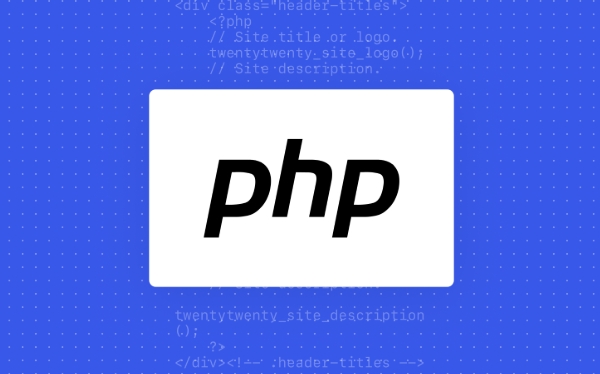揭开$ _request的奥秘:获得,张贴和饼干发生冲突
$_REQUEST合并GET、POST和COOKIE数据,但存在安全和可预测性风险;当键冲突时,其覆盖顺序由php.ini中的variables_order或request_order决定,默认为EGPCS,即POST覆盖GET,GET覆盖COOKIE;例如,当GET、POST和COOKIE中均有"user"参数时,POST值胜出;使用$_REQUEST可能导致安全漏洞、行为不可预测及测试困难;最佳实践是避免使用$_REQUEST,而应明确使用$_GET、$_POST或$_COOKIE;仅在输入源无关的通用过滤、安全框架或原型开发中有限使用;总之,由于其行为依赖配置且易被滥用,应优先选择特定超全局变量以确保代码清晰与安全。

When working with PHP, you’ve likely come across $_GET, $_POST, and $_COOKIE—superglobals that store data from different sources. But there’s another one that often raises eyebrows: $_REQUEST. It’s a convenient shortcut, but it can also introduce subtle bugs if you don’t understand how it works. Let’s break down what $_REQUEST really is, how it behaves when GET, POST, and COOKIE data collide, and why you should think twice before using it.

What Is $_REQUEST?
$_REQUEST is a PHP superglobal that, by default, contains the contents of $_GET, $_POST, and $_COOKIE. It’s a merged array allowing you to access request data without knowing the method or source upfront.
For example:

// If you send a GET request: ?name=John echo $_REQUEST['name']; // Outputs: John // Or submit a form via POST with name=Jane echo $_REQUEST['name']; // Outputs: Jane // Or if a cookie named 'name' exists echo $_REQUEST['name']; // Outputs the cookie value
This seems handy—no need to check which method was used. But convenience comes at a cost.
How Does $_REQUEST Handle Conflicts?
When the same key exists in more than one of $_GET, $_POST, or $_COOKIE, PHP doesn’t merge them—it overwrites them based on a predefined order. This order is controlled by the variables_order or request_order directives in php.ini.

By default, most PHP installations use:
variables_order = "EGPCS"
Which stands for:
- E → Environment variables
- G → GET
- P → POST
- C → Cookies
- S → Server variables
So when $_REQUEST is populated, values are merged in that order, with later entries overwriting earlier ones.
But here’s the catch: $_REQUEST only includes G, P, and C by default, and the priority order is actually determined by the sequence in request_order. If not set, it follows variables_order, and typically, POST takes precedence over GET, which takes precedence over COOKIE.
For example:
// Request: ?user=admin // POST data: user=hacker // Cookie: user=guest echo $_REQUEST['user']; // Outputs: hacker (POST wins)
This means an attacker could potentially override URL parameters (GET) by including the same parameter in POST—even if your logic assumes the value comes from the query string.
Security and Predictability Risks
Using $_REQUEST can lead to:
- Security vulnerabilities: If you’re checking a token in GET but allow it to be overridden via POST or cookies, you might weaken CSRF protections.
- Unpredictable behavior: The same script might behave differently based on how data is sent, making bugs hard to trace.
- Testing complexity: Mocking requests becomes harder when multiple input sources affect the same variable.
For instance, imagine this code:
if ($_REQUEST['action'] === 'delete') {
deleteAccount();
}An attacker could:
- Send a POST request with
action=delete, even if the link was meant to be GET-only. - Set a malicious cookie that triggers the action unexpectedly.
Best Practices: When (and When Not) to Use $_REQUEST
In most cases, avoid $_REQUEST. Instead:
- Use
$_GETwhen expecting URL parameters. - Use
$_POSTfor form submissions. - Use
$_COOKIEonly when explicitly dealing with cookies.
This makes your code more secure and easier to audit.
However, $_REQUEST might be acceptable in limited scenarios:
- Generic input filters where source doesn’t matter (e.g., logging all input).
- Frameworks or routers that abstract input handling safely.
- Quick prototypes (but remove it before production).
Even then, explicitly checking each source gives you more control.
Bottom Line
$_REQUEST is like a magic box that combines inputs—but the box has rules you can’t always see. When GET, POST, and COOKIE collide, the winner depends on PHP’s internal configuration, not your intent. That unpredictability is dangerous.
Stick to the specific superglobals. Know your data source. Write clearer, safer code.
Basically: just because you can use $_REQUEST, doesn’t mean you should.
以上是揭开$ _request的奥秘:获得,张贴和饼干发生冲突的详细内容。更多信息请关注PHP中文网其他相关文章!

热AI工具

Undress AI Tool
免费脱衣服图片

Undresser.AI Undress
人工智能驱动的应用程序,用于创建逼真的裸体照片

AI Clothes Remover
用于从照片中去除衣服的在线人工智能工具。

Clothoff.io
AI脱衣机

Video Face Swap
使用我们完全免费的人工智能换脸工具轻松在任何视频中换脸!

热门文章

热工具

记事本++7.3.1
好用且免费的代码编辑器

SublimeText3汉化版
中文版,非常好用

禅工作室 13.0.1
功能强大的PHP集成开发环境

Dreamweaver CS6
视觉化网页开发工具

SublimeText3 Mac版
神级代码编辑软件(SublimeText3)
 使用PHP的$ _request超级全局的固有安全风险
Aug 02, 2025 am 01:30 AM
使用PHP的$ _request超级全局的固有安全风险
Aug 02, 2025 am 01:30 AM
UsingPHP’s$_REQUESTsuperglobalintroducessecurityrisksbecauseitcombinesinputfrom$_GET,$_POST,and$_COOKIE,leadingtounpredictablebehavior;2.Itallowsunintendedinputsourcestooverrideintendedones,suchasamaliciouscookietriggeringadeleteactionmeanttocomefrom
 超越卫生化:$ _request的数据歧义的基本问题
Aug 03, 2025 am 04:23 AM
超越卫生化:$ _request的数据歧义的基本问题
Aug 03, 2025 am 04:23 AM
Using$_REQUESTintroducesdataambiguitybymerginginputsfrom$_GET,$_POST,and$_COOKIE,makingitimpossibletodeterminethesourceofdata.2.Thisunpredictabilityweakenssecuritybecausedifferentsourceshavedifferenttrustlevelsandattackvectors,suchasCSRFviaGETorsessi
 解构危险:为什么现代PHP开发人员避免$ _request
Aug 02, 2025 pm 03:10 PM
解构危险:为什么现代PHP开发人员避免$ _request
Aug 02, 2025 pm 03:10 PM
$_REQUESTisdiscouragedinmodernPHPbecauseitmergesinputfrom$_GET,$_POST,and$_COOKIE,creatingsourceambiguitythatunderminessecurityandpredictability.2.Thisambiguityenablesattackssuchascookietampering,requestmethodconfusion,andCSRFbypass,asseenwhenamalici
 揭开$ _request的奥秘:获得,张贴和饼干发生冲突
Aug 06, 2025 am 08:06 AM
揭开$ _request的奥秘:获得,张贴和饼干发生冲突
Aug 06, 2025 am 08:06 AM
$_REQUEST合并GET、POST和COOKIE数据,但存在安全和可预测性风险;当键冲突时,其覆盖顺序由php.ini中的variables_order或request_order决定,默认为EGPCS,即POST覆盖GET,GET覆盖COOKIE;例如,当GET、POST和COOKIE中均有"user"参数时,POST值胜出;使用$_REQUEST可能导致安全漏洞、行为不可预测及测试困难;最佳实践是避免使用$_REQUEST,而应明确使用$_GET、$_POST或$_C
 从$ _request到请求对象:现代框架中输入处理的演变
Aug 06, 2025 am 06:37 AM
从$ _request到请求对象:现代框架中输入处理的演变
Aug 06, 2025 am 06:37 AM
从$ _requestToreQuestObjectSrepresentsamajorimProvementInphpDevelopment.1.RequestObjectSabstractstractsuperglobalsIntoAclean,一致,消除,消除bighancebiguityaboutinputsources.2.theyeneenenhancesecuritybutinable andfiritiatiand
 深入研究$ _request vs. $ _ post vs. $ _get:理解优先级和陷阱
Aug 06, 2025 pm 05:42 PM
深入研究$ _request vs. $ _ post vs. $ _get:理解优先级和陷阱
Aug 06, 2025 pm 05:42 PM
避免使用$ _requestDuetunPrediCtabledAtasOutAtasOudatAseCurityRisks; 2.使用$ _getForideMpotEntoperationsLikeFiltering,$ _ forportate-forState-forState-changingactionsLikeFormSubmission; 3.thevaluein $ _requestdeplysonRequestDeptsonRequestDepliandeptsonRequestDeppedsonRequestdeppedsonrequestdepliandeplyquior_ $ quiorQiorQiorQiorQiorquior lade teedtotosent;
 掌握输入控制:php.ini中的``request_order''
Aug 08, 2025 pm 06:02 PM
掌握输入控制:php.ini中的``request_order''
Aug 08, 2025 pm 06:02 PM
terequest_orderdireativeinphp.inidetermineswhichdatasources(get,post,cookie)aremergedInto $ _requestandtheirprecedenceOrder; tofexample,request_orders_order =“ gp”表示$ _requequestincludesonlygudesonlygudesonlygetandpostdata,withpostostobostostostostoverristoverristoderristingwhenenekeysConteNekeySconaneNekeysConfort;
 确保您的应用程序:为什么明确$ _get和$ _post优于$ _request
Aug 08, 2025 pm 05:18 PM
确保您的应用程序:为什么明确$ _get和$ _post优于$ _request
Aug 08, 2025 pm 05:18 PM
Using$_GETand$_POSTinsteadof$_REQUESTismoresecurebecauseitensurespredictableinputsources,2.ItpreventsparameterconflictsduetooverlappingnamesinGET,POST,andCOOKIE,3.ItstrengthensdefensesagainstCSRFbyenforcingrequestmethodintegrity,4.Itimprovescodeclari







